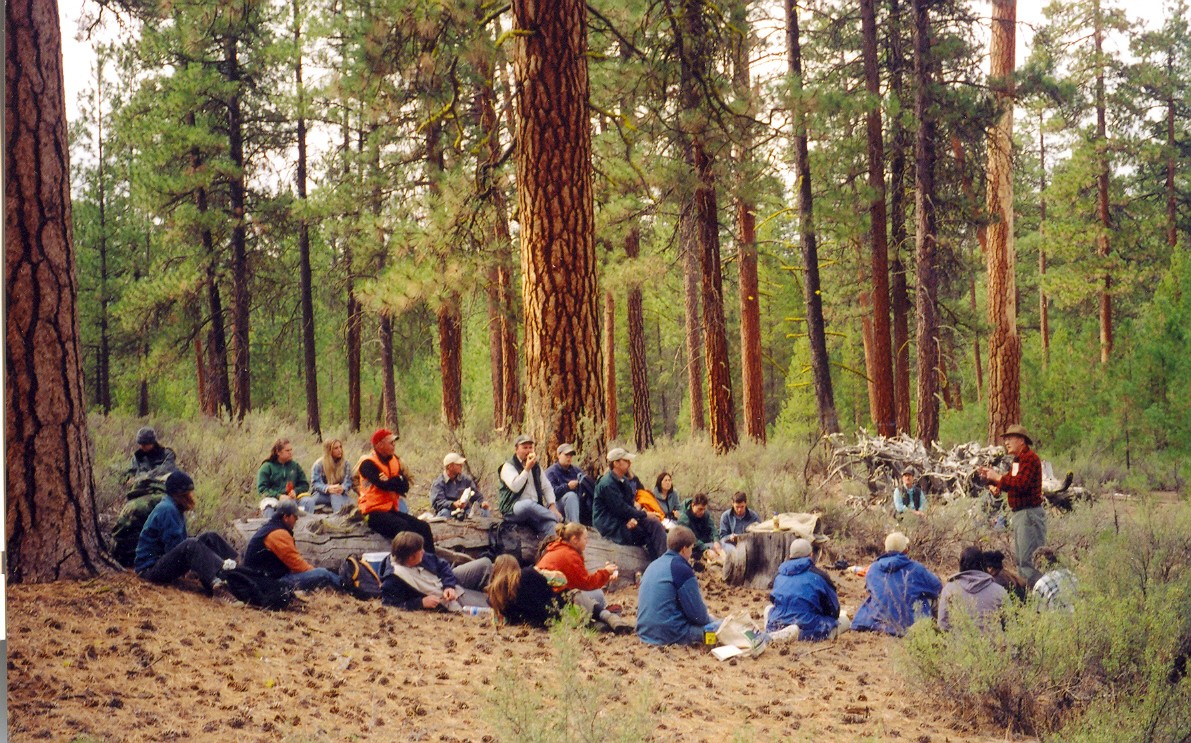
Editor’s note: As summer’s wildfires reluctantly release their hold on the landscape, the debate over the future of Western forests is vigorous this fall. That conversation includes a reassessment of the Northwest Forest Plan and the re-emergence of one of its chief authors. Science magazine writer Warren Cornwall recently spent some time with University of Washington ecologist Jerry Franklin and has this fascinating report. You’ll find that the passage of time has made Franklin no less the provocateur.
WESTERN OREGON — Jerry Franklin has spent much of his life in the company of giants. From his childhood in the woods of Washington state to a scientific career that catapulted him to international prominence, the towering trees of the U.S. Pacific Northwest have shaped his world. In the 1980s, the forest ecologist became a hero to many conservationists thanks to research that helped lead to a controversial 1994 plan protecting millions of hectares of old-growth forests in the Pacific Northwest from logging.
But one morning this past summer, Franklin stood on a dirt road in southwest Oregon gazing at a logged hillside that was the antithesis of a lush, old-growth forest. The chainsaws had left stumps, piles of tangled limbs, and a smattering of standing trees, along with bushes and grass. “The scene of the crime,” he declared, with a hint of irony.
Today, in the twilight of his life, the 80-year-old scientist has become a champion of this far different landscape, which he sees as vital to supporting a full range of forest species. That change has again thrust Franklin, a professor at the University of Washington in Seattle, to the center of a debate over the future of the Northwest’s forests — including a potential rewrite of that seminal 1990s Northwest Forest Plan. This time, Franklin is drawing the ire of conservationists for promoting forest management techniques — including targeted logging — designed to create more of the scraggly patches of protoforest that ecologists call “early seral” communities.
Forest managers in North America and elsewhere think Franklin is onto something. In part, that reflects an evolving understanding of forest ecology, and a growing appreciation of the importance of humble bushes and grasses. But Franklin’s continuing influence also reflects his knack for straddling the worlds of science and politics. His comfort in the woods is matched by his ease at conveying technical arguments to policymakers and the public. Now, he’s bringing those formidable skills to bear on a proposition that might seem like a tough sell: Sometimes bushes are better than trees, and sometimes logging is the best route to a species-rich landscape. Franklin admits: “I’m kind of a provocateur.”
Jerry just spent a few days with me in my Pinelands of southern new Jersey!
I would encourage all to read his new book due out January of 18- a revolution in managing our forests ecologically will come!!
And it will me save our atlantic white cedar wetland forest type that is being lost across its entire range as little to nothing is done to save this ecosystem!! We worry about individual species yet we have an entire forest ecosystem from Maine to Mississippi declining right in front of our eyes!!